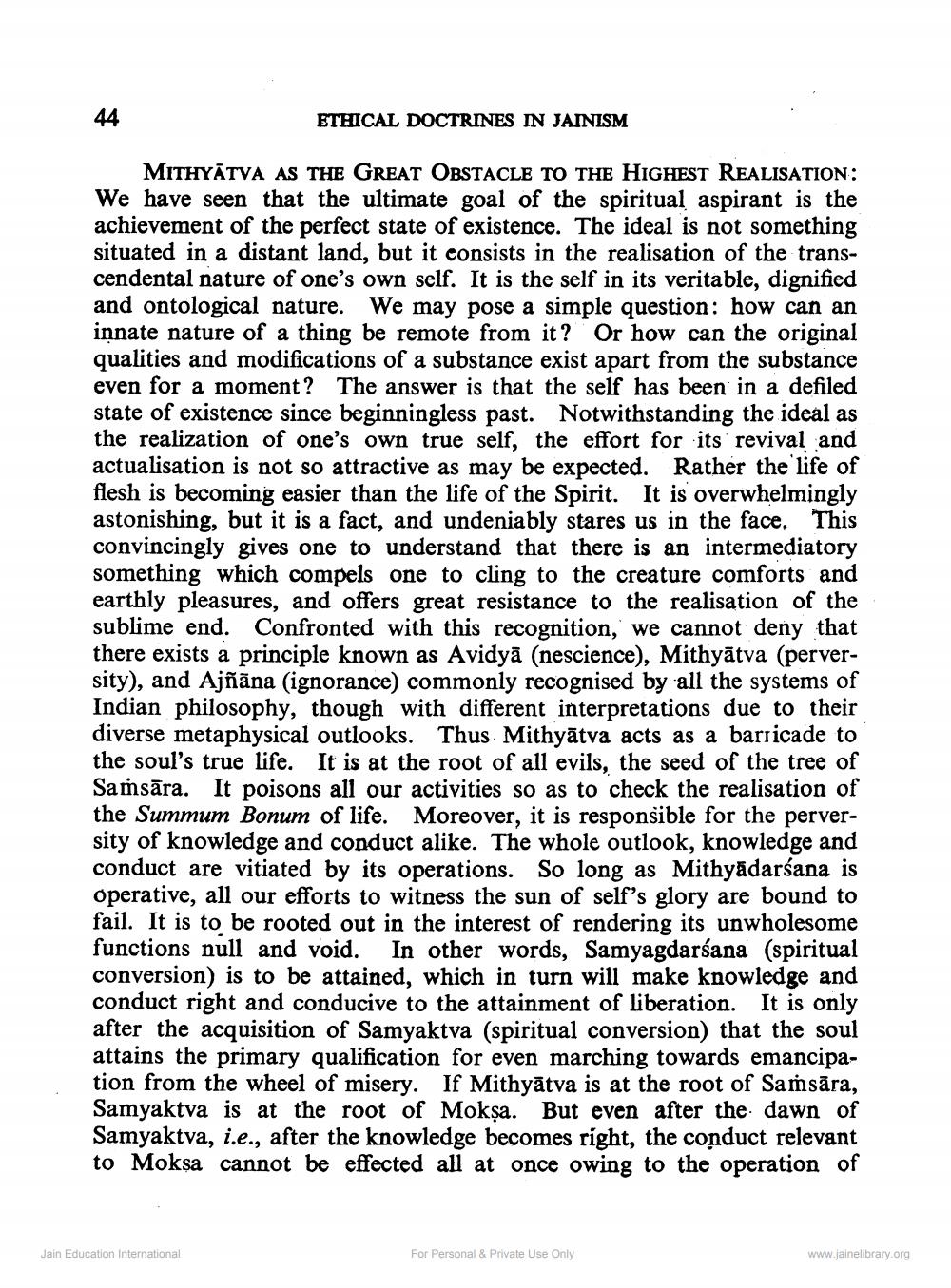________________
44
ETHICAL DOCTRINES IN JAINISM
MITHYĀTVA AS THE GREAT OBSTACLE TO THE HIGHEST REALISATION: We have seen that the ultimate goal of the spiritual aspirant is the achievement of the perfect state of existence. The ideal is not something situated in a distant land, but it consists in the realisation of the transcendental nature of one's own self. It is the self in its veritable, and ontological nature. We may pose a simple question: how can an innate nature of a thing be remote from it? Or how can the original qualities and modifications of a substance exist apart from the substance even for a moment? The answer is that the self has been in a defiled state of existence since beginningless past. Notwithstanding the ideal as the realization of one's own true self, the effort for its revival and actualisation is not so attractive as may be expected. Rather the life of flesh is becoming easier than the life of the Spirit. It is overwhelmingly astonishing, but it is a fact, and undeniably stares us in the face. This convincingly gives one to understand that there is an intermediatory something which compels one to cling to the creature comforts and earthly pleasures, and offers great resistance to the realisation of the sublime end. Confronted with this recognition, we cannot deny that there exists a principle known as Avidyā (nescience), Mithyātva (perversity), and Ajñāna (ignorance) commonly recognised by all the systems of Indian philosophy, though with different interpretations due to their diverse metaphysical outlooks. Thus Mithyātva acts as a barricade to the soul's true life. It is at the root of all evils, the seed of the tree of Samsāra. It poisons all our activities so as to check the realisation of the Summum Bonum of life. Moreover, it is responsible for the perversity of knowledge and conduct alike. The whole outlook, knowledge and conduct are vitiated by its operations. So long as Mithyādarśana is operative, all our efforts to witness the sun of self's glory are bound to fail. It is to be rooted out in the interest of rendering its unwholesome functions null and void. In other words, Samyagdarśana (spiritual conversion) is to be attained, which in turn will make knowledge and conduct right and conducive to the attainment of liberation. It is only after the acquisition of Samyaktva (spiritual conversion) that the soul attains the primary qualification for even marching towards emancipa. tion from the wheel of misery. If Mithyātva is at the root of Samsāra, Samyaktva is at the root of Moksa. But even after the dawn of Samyaktva, i.e., after the knowledge becomes right, the conduct relevant to Moksa cannot be effected all at once owing to the operation of
Jain Education International
For Personal & Private Use Only
www.jainelibrary.org




